With Diablo IV’s release fast approaching, fans are chomping at the bit to hear anything they can about the upcoming RPG. Since its announcement, we’ve heard Blizzard reiterate that Diablo IV is designed to provide many choices in gameplay and visual customization and that they are a core aspect of what makes Diablo IV special.
We recently had a chance to participate in a group interview with two of the developers in charge of making Diablo IV. Adam Jackson, Lead Class Designer, and Melissa Corning, Lead Game Producer for story and narrative, and pick their brains about the game’s focus on customization in all its aspects. These were the key points they discussed, with details on their reasons behind certain choices and what players can expect from the full game when its launches on June 6.
Related: Diablo IV Release Date, Preorders & Trailers
The Cost of Respeccing
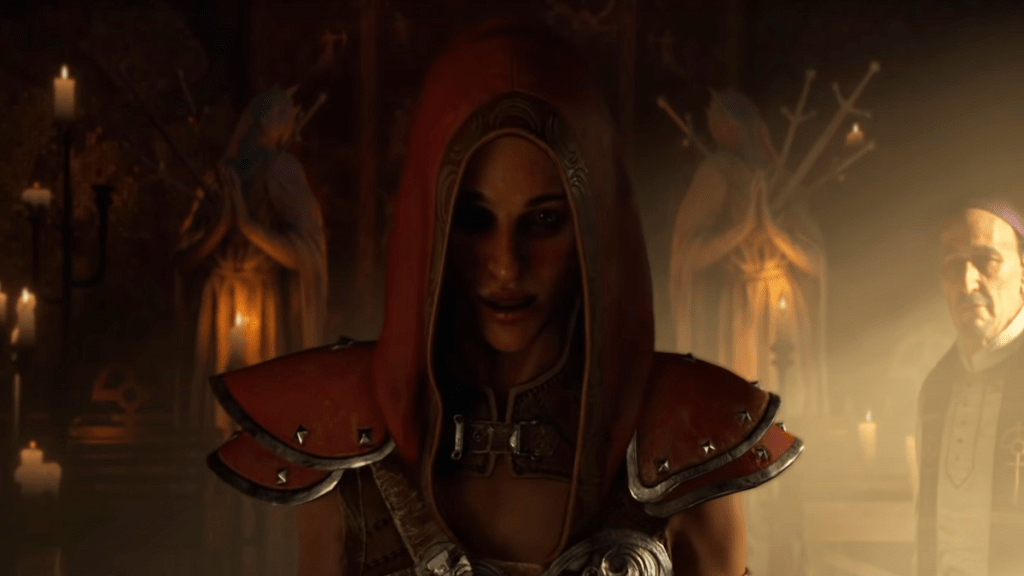
Given it’s been a significant point of discussion leading up to the game’s release, it makes sense that one of the first topics discussed was how Diablo IV is handling its respec options. To give you the cliff notes version, Diablo IV, like most RPGs, will allow players to change their abilities to create different builds, giving you more ways to play a particular class. In the case of Diablo IV, this will be easy at early levels and be practically free, while as you reach higher levels, the cost will increase. Naturally, some players have expressed concerns, but Jackson took the time to explain why they have chosen this approach, and it turns out it’s been quite a challenge for the team to get right.
“We have to balance this idea that we want players to commit to a fantasy and a character and, you know, have actual weight and meaning to their choices, but we also want them to feel free to customize their character and explore and try different builds and fantasies and ways to play.” He went on to detail how they want the early game to give you room to “experiment and do what you want, particularly through the campaign,” and as you approach the later stages of the game, including the rather robust endgame content, they do want players to begin to “optimize and focus on a build and focus on a real fantasy,” the idea being that players can have that sense of identity when they hone in on their playstyle and approach to the game’s content.
That’s not to say they haven’t looked to past games in the series to influence this decision, where Diablo II would lock you in, and changing spec was a hard choice, whereas Diablo III went the opposite direction, and it was completely free. The team wants to have a bit of both, and they don’t want players to feel like they need to be remaking multiple characters to try every build. “As far as our vision of ‘do we want you to remake a character from the ground up every time you wanna change your build?’ Not really,” instead, they want it to be a “real choice,” and there should be some sense of commitment and investment into what you are doing.
As for how and if that will change over time, don’t expect them to make respecing free “any time soon,” but with a live service game, things can change, and Jackson made it clear that they are “listening to feedback from the community,” with hopes of making “the best game possible.”
Build Customization
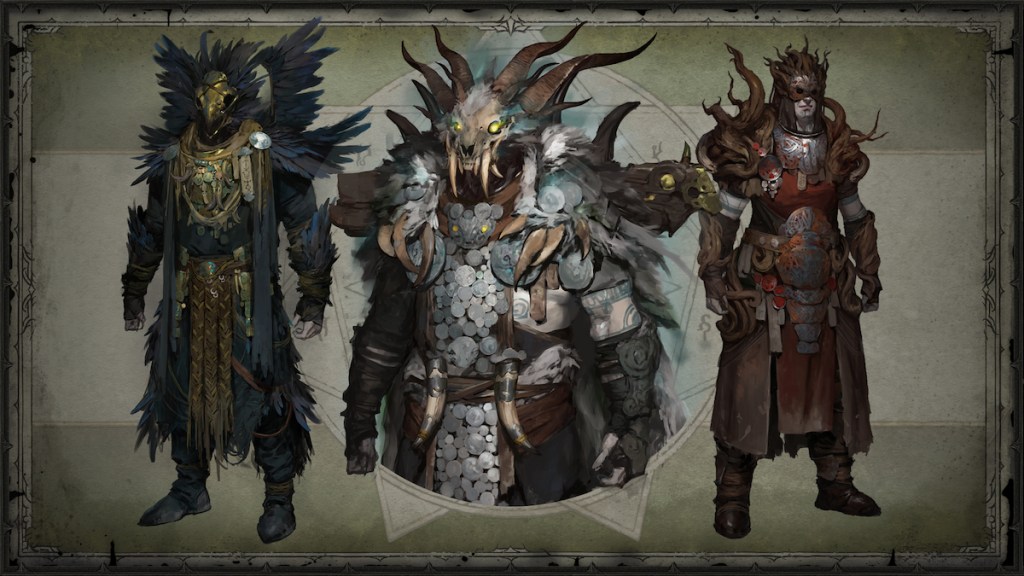
Build customization is just as important as visual options in Diablo IV. During our interview, Jackson and Corning reiterated and went into more detail about the team’s approach to this crucial component of the game.
The skill tree was a particular point of interest, and with the depth and options the game will offer, it’s safe to assume it could be overwhelming for some players. For Jackson, this turned out to be something of great importance to solve. “This is something I’m actually really passionate about,” he told us, which was evident as he detailed the team’s work in making the game assessable when it comes to making builds.
Related: Blizzard Announces Final Beta for Diablo IV to Launch in May
“We don’t want to overwhelm players; we don’t want the number of choices they have at the beginning to be too large,” he stated before elaborating on how to alleviate some of those issues. The game will space out “almost all of the customization content.” So for players, rather than dealing with a wall of options, you start with a basic attack, then work to your resource spender, then defensive, and so on. Beyond that, Corning spoke about adding a search bar for keywords and abilities. “If I’m like, ok, this is a really cool effect, you can try in burn, and it will highlight all of the skills that actually take advantage of that effect. I know for me, it’s been very useful.” All these decisions have been made to let players discover their playstyle in a smooth and approachable way. As you grow in skill, so does the system’s complexity, and your playstyle becomes more solidified.
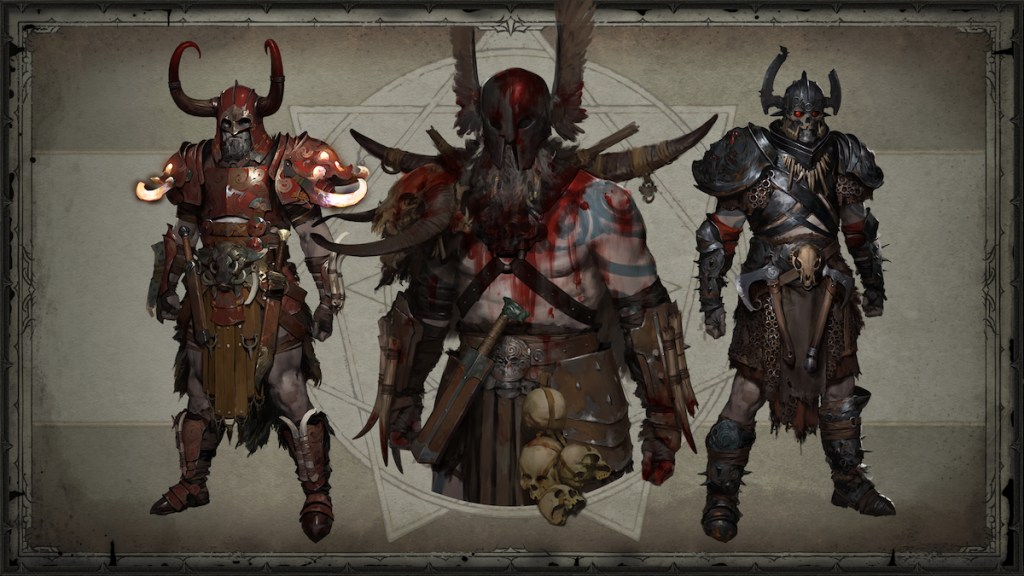
Of course, when talking about builds, the topic of meta came up early in the discussion, and the team is more than expecting there to be one with Diablo IV. Jackson said, “We totally expect there will be a meta,” and in this day and age, it’s expected that players will be drawn to or want to build their characters to be the best according to a meta. That said, they have taken great care to make sure all the classes feel “relatively equal in power to each other class” and that, in the same vein, builds will feel powerful, with varied pros and cons, and bring something of value to the total package of the class. In essence, no matter how you choose to play, they want you to feel awesome and enjoy it, meta or not.
Lastly, for fans who may want to emulate older classes through builds, like the Demon Hunter seen in Diablo III, Jackson said fans can find “some aspects of that in certain ways our classes play.” At the same time, he emphasized that while they want players to have something they can identify with from previous titles, they want to balance the old and new, and creating new classes and styles of play will make the Diablo IV “new and exciting.”
He left off on a particularly juicy tidbit that hints we may see old classes return in the future, saying if they were to make classes too similar, they can’t “bring that class in in the future if we wanted to for Diablo IV.” So who knows, maybe we could see old classes return one day and offer even more options to players.
Crafting System
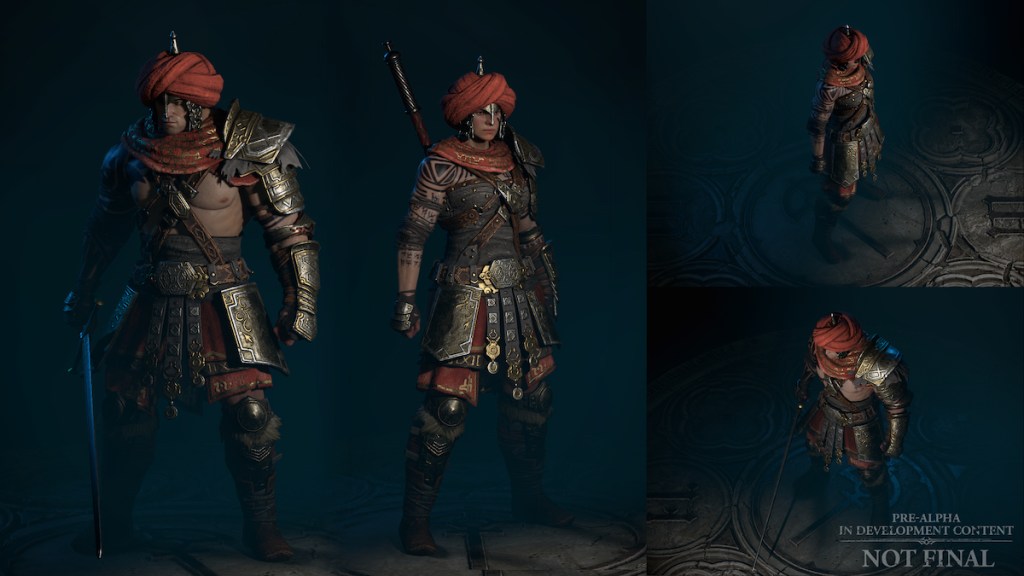
Crafting has existed in previous Diablo titles, and players could create new gear along their journey to better fit a build or keep on progressing through the game. For Diablo IV, crafting will make its return, but it’s less about the actual crafting of gear this time, though that wasn’t always the case.
Using the Blacksmith as an example, Jackson explained, “One of the big pivots we made is that you don’t craft gear at the Blacksmith, which we did have for a long time in Diablo IV and played around with.” After multiple iterations, they shifted the way players would approach crafting in all areas of the game. Rather than you going and creating your gear, they moved toward an “item modification and item upgrading” model.
“The idea is that you find maybe what’s close to your perfect item, and you can make it even closer, or make it your perfect item. Or you find the one that you really really want to use for a long time, and then you make it more powerful by upgrading it.” As for why they chose this direction, one answer was pretty simple: Loot. “Killing monsters and finding loot is what Diablo is; that is the gameplay loop,” so for the team, it felt like crafting wholly new gear would “subvert” that core experience. Instead, they hope that their approach will enhance the loot finding and refining experience, and “mitigate the RNG a little bit.”
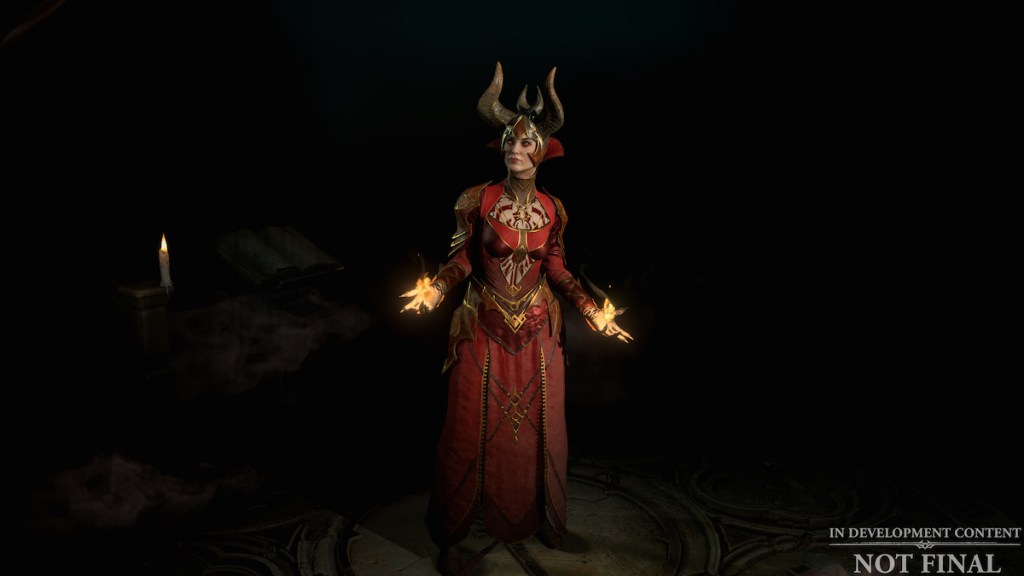
Post-launch could see crafting getting refined and improved, with Jackson saying the team “feel like we still have a lot of things we can even do down the road to make this an even better experience for players, so we definitely aren’t done with it at launch.”
While the example he used was for the Blacksmith, this approach is something you can expect to see in all areas of crafting and upgrading your character outside of your skills. Adding gems, improving gear, applying legendary effects, all of these are designed to help feed your fantasy while encouraging that loot hunt and refinement, which like everything else, is aimed to give players all the choices they want.
Player’s Freedom of Choice
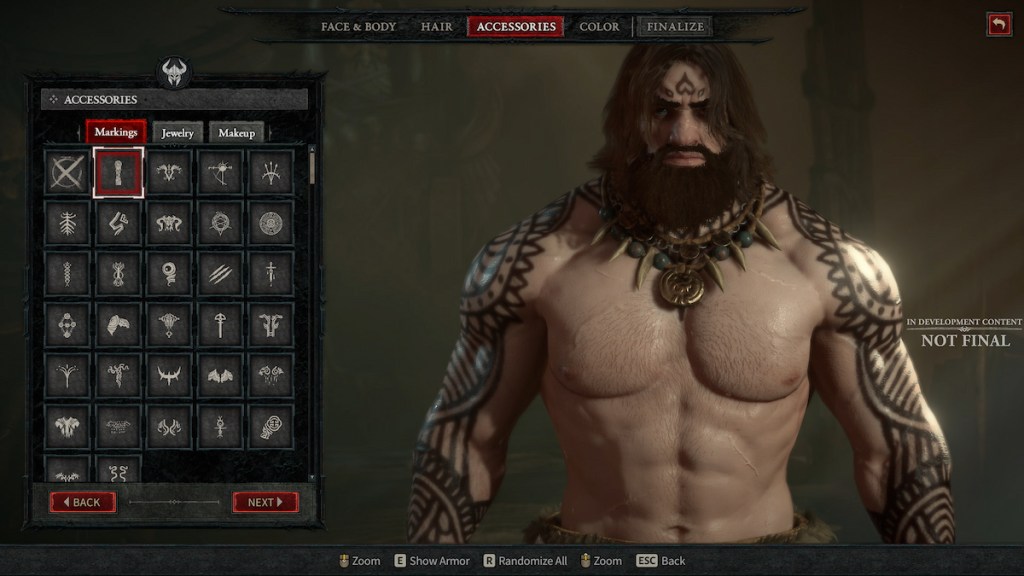
Throughout our time with Jackson and Corning, there was a common thread woven through every topic and discussion around character customization and, in reality, the whole of Diablo IV; Freedom of choice. Nearly every design choice is centered on the idea that players should be able to choose how they express and enjoy their character, and the conversation always came back to that core idea.
It’s why certain features like gear sets won’t be returning in Diablo IV. Ok, when we say that, you be wondering how that’s a good thing, but Jackson gave a more than convincing explanation, saying that “as much as we can, we trying to chase a more open-ended design in a way where the players choose how they want to their destinations,” which is to say, they don’t players funneled into one road. That’s not to say they won’t return in the future, which Jackson did mention too. You know, live service game and all that.
The same applies to Legendary Effects, which grant players new abilities or modifiers to skills. Jackson acknowledged that “there’s gonna be certain legendary powers or certain unique effects you are going to chase, that are obviously gonna make your build way cooler and more powerful over time,” but that will be varied from build to build. The diverse ways players can approach that is just another way to give players the freedom of choice. With The Paragon System, and the other customization options all feeding back into that sense of uniqueness, and the breadth of customization players have with gear and Legendaries, they hope it provides that player-centric experience when it comes to customization. As Jackson so eloquently put it, “We give you the endpoint of what you’re wanting to chase, but how you get there is kinda up to you.”
Related: Blizzard Embraces Diablo IV Beta Community Feedback With New Changes
With all the mechanical talk around player customization, it’s worth noting that this same level of choice and freedom is apparent in making your character and how you want them to look. “Our goal is definitely for every single class to feel unique, not just through their skills and animations, but definitely through a diverse visual appearance as well,” Corning told us, later furthering that point when discussing character creation, as well as representation. “Right from the get-go, we made kinda one of our pillars of customization, that we really wanted to embrace diversity and inclusion, and we put a lot of effort into making sure our options covered a wide spectrum.”
“We did actually a lot of reviews with different cultural representatives that we have at Blizzard, and we got their feedback.” If anything else, it was clear that the team sees this aspect as just as important as the mechanical elements, and Corning made it clear they hope to “fulfill people’s expectations in that regard.”
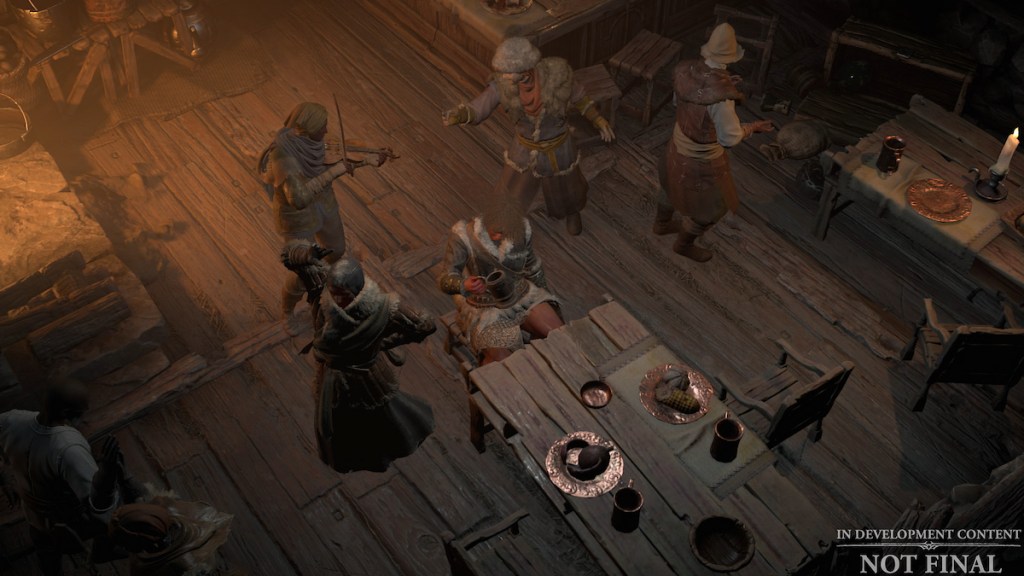
We think it’s worth mentioning that we asked about the live service model. With seasons and battle passes, we hoped for a bit more depth on how that would work in terms of character customization, like the free and premium tree of the pass, but were only told they would be discussing that at a later date.
These were some of the key points and highlights from our chat with Jackson and Corning. Hopefully, they have given you some insight into the team’s approach to customization and, more importantly, making Diablo IV as immersive, and player-focused as possible.
To close us out, we’ll leave you with their final thoughts. For Corning, they were simple: “We’re super excited for Diablo IV’s release coming up, and I honestly just can’t wait for more to get to go through the entire game.” For Jackson, it was much of the same. “We’re all very very excited to finally see this go out to the world and to play it ourselves in a live environment,” and that himself, Corning, and the team are committed to making Diablo IV “the best game experience as possible.”
Diablo IV will release on June 6. Players who preorder the Deluxe of Ultimate Editions can gain early access and play the game from June 2.

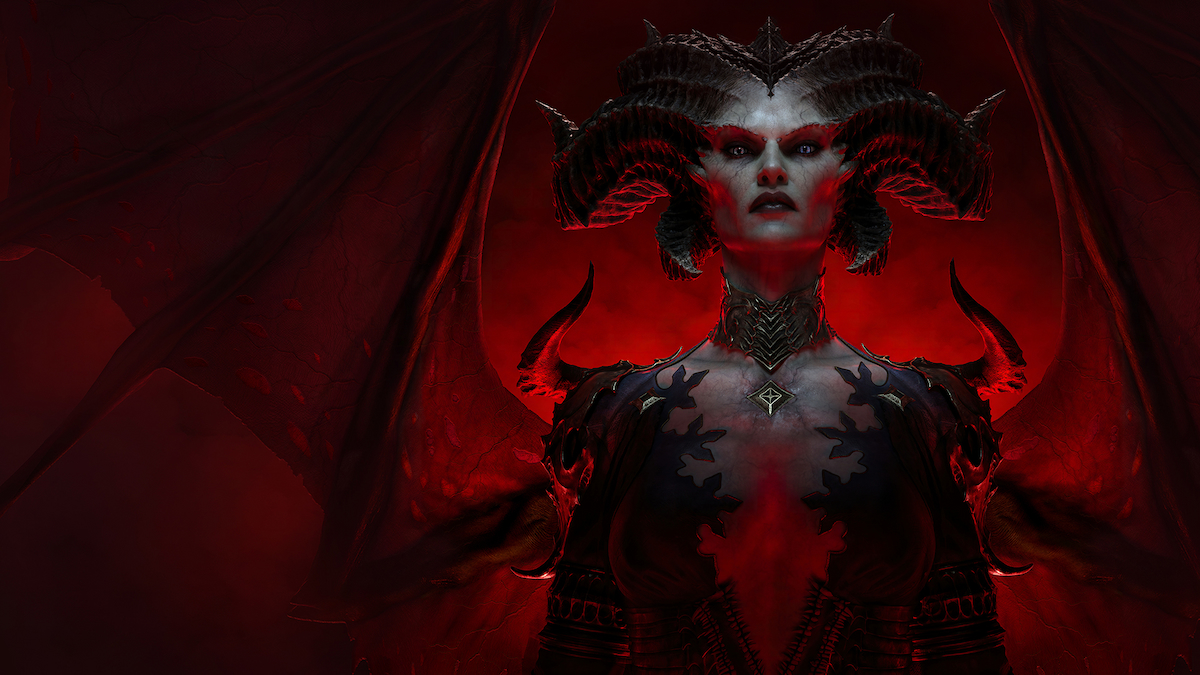
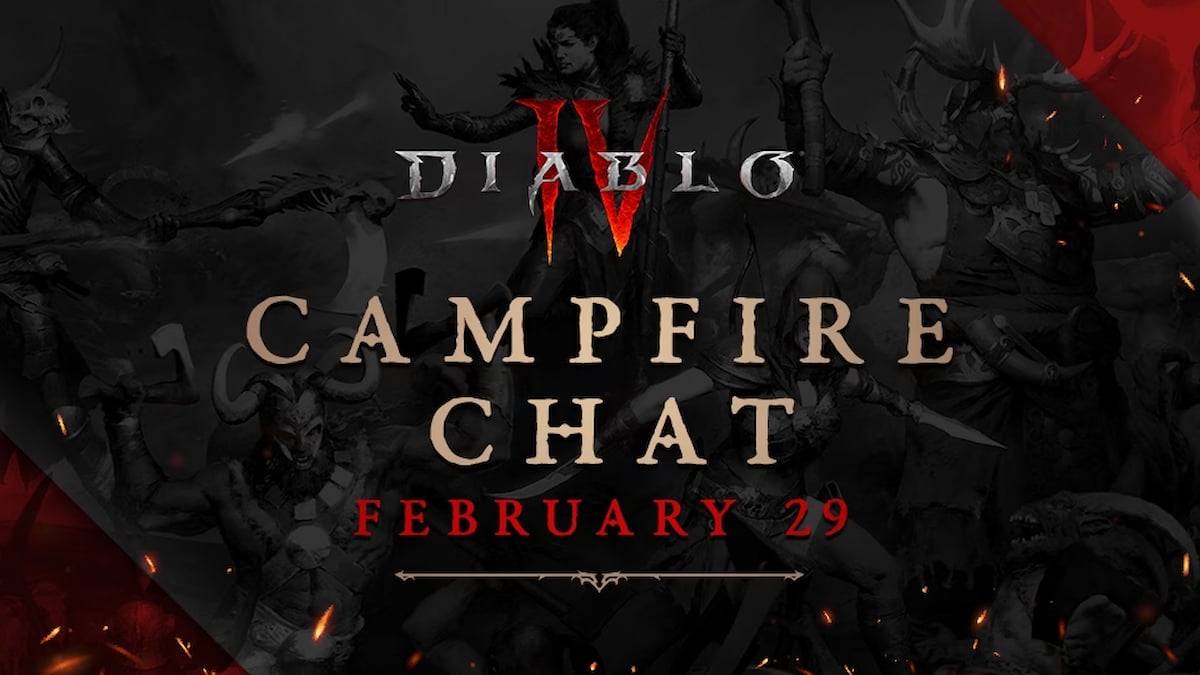
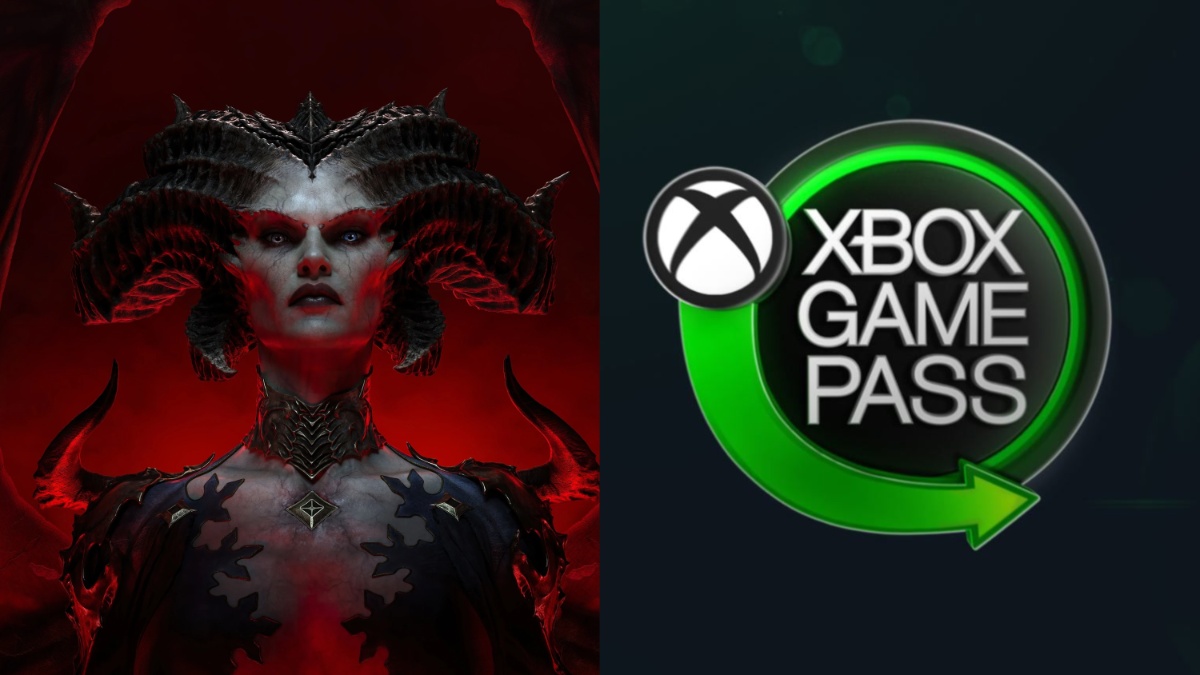
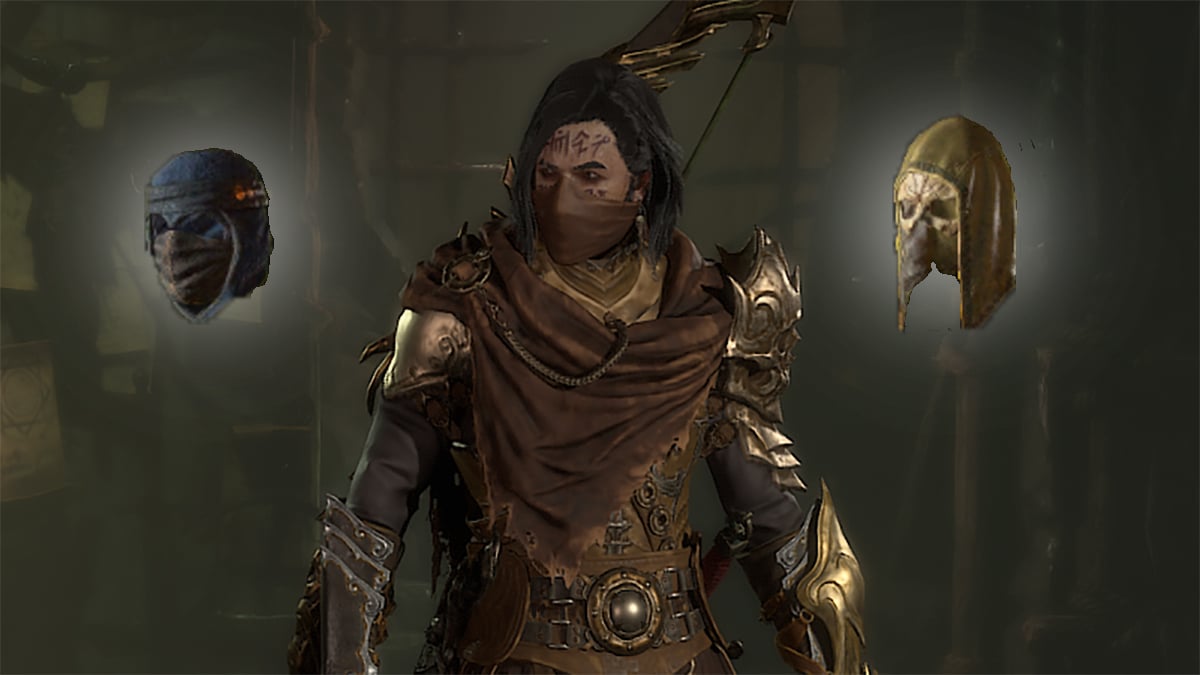
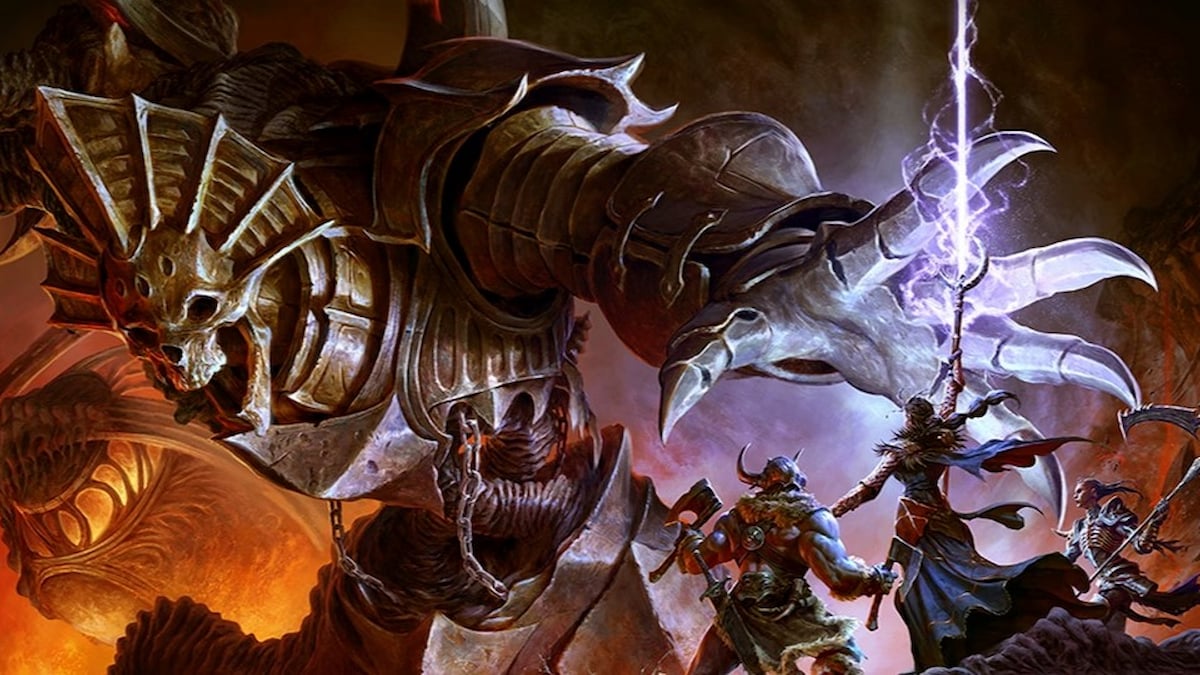
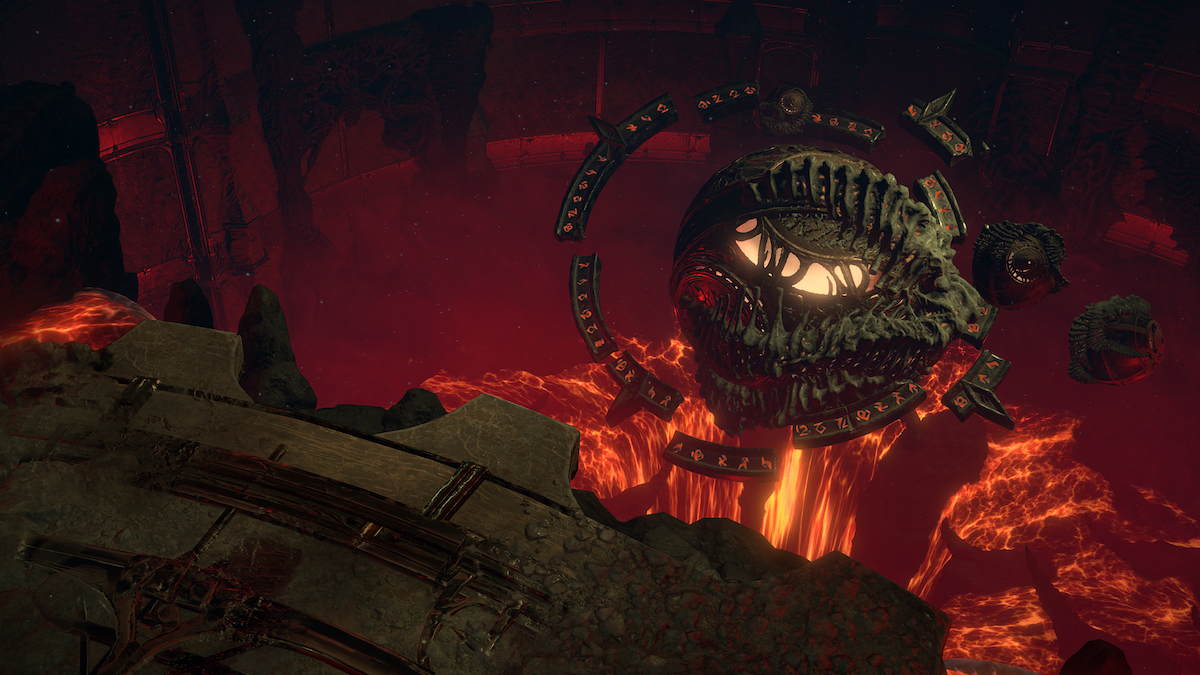
Published: Apr 25, 2023 12:00 pm